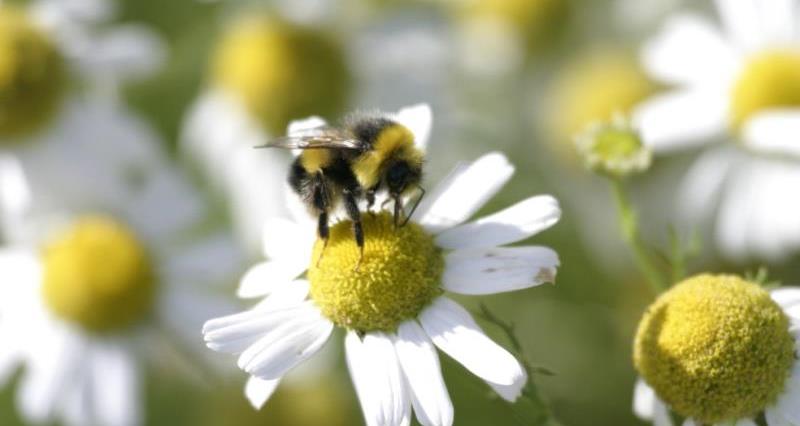Farmers across the country, with the help of the Campaign for the Farmed Environment (CFE), have voluntarily provided over 21,000 acres of floral habitat for pollinators. The NFU said it would like to see more government recognition for the work farmers are already doing.
NFU Vice President Guy Smith said: “Farmers do fantastic work for pollinators covering thousands of acres of the British countryside. This substantial contribution benefits local biodiversity and brings valuable and vital pollination to crops.
Bees worth £200m to crops
The British Bee Keepers' Association says: In the UK about 70 crops are dependent on, or benefit from, visits from bees. In addition, bees pollinate the flowers of many plants which become part of the feed of farm animals. The economic value of honey bees and bumble bees as pollinators of commercially grown insect pollinated crops in the UK has been estimated at over £200 million per year.
“As an arable farmer I am well aware of the importance of bees to the good pollination of my crops. Indeed one reason I like growing oilseed rape is because I know it provides a rich source of food for bees early in their foraging year. I'm also aware oilseed rape can provide nesting habitats for bird species such as reed buntings. Like many other farmers I also undertake measures to increase pollinators through the establishment of floristically enhanced environmental margins.
“This reciprocal relationship between farmers and bees has only improved over time. The CFE is running a successful seed bank for farmers to establish pollinator habitat and it offers practical guidance and training. It is vital that this is recognised by government alongside other conservation efforts.”
The NFU also has concerns about the funding of the National Pollinator Strategy. At the Pollinator Strategy Implementation Plan launchevent, George Eustice said it would be ‘unaffected by cuts’ as a big part of the delivery was through the Pollinator Package of Countryside Stewardship - but this will not cover research funding.
Guy Smith continued: “Without doubt, the most important part of this strategy is the monitoring projects. Providing a baseline on pollinator numbers in the UK underpins everything – without it, we have no idea of the current state of pollinator populations. We need to be able to measure the impact of agriculture’s efforts in helping pollinators.
“Government must ensure the National Pollinator Strategy, especially the monitoring projects, have adequate funding. Otherwise, I fear the whole thing falls down.”
